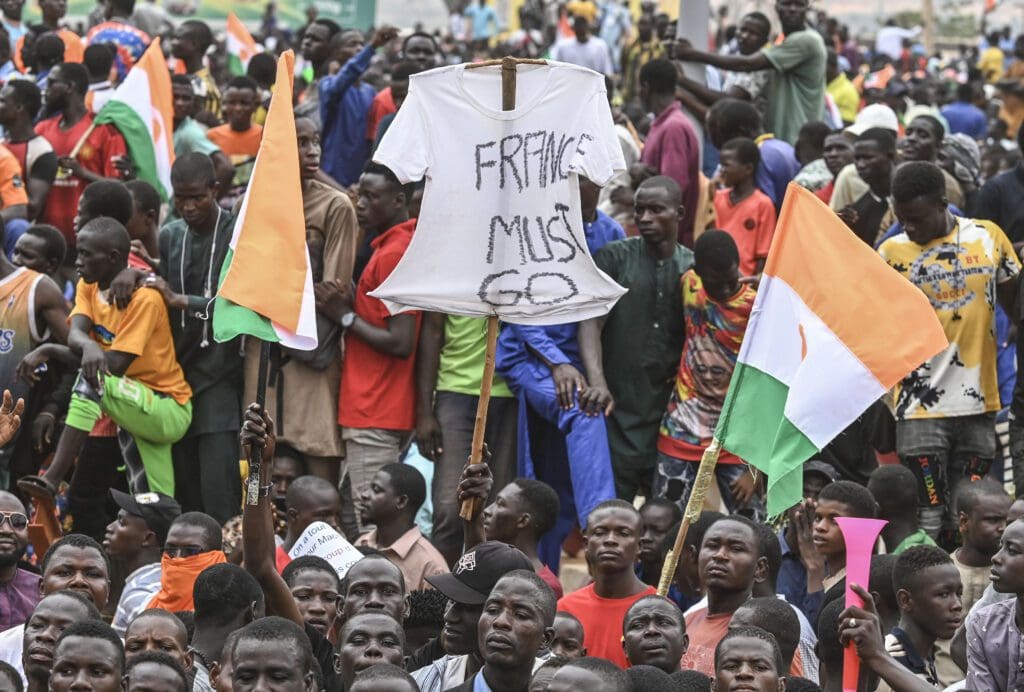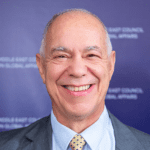July’s military coup against Niger’s pro-western President Mohamed Bazoum has sparked a complex crisis with momentous consequences for the entire region. The latest in a string of military power-grabs across the Sahel, it has drawn a particularly sharp reaction from former colonial power France, which has forces stationed in the country—ostensibly to fight Islamist militants—and relies on Niger for nearly a fifth of the uranium fueling its nuclear-dependent power grid.
But threats of military action to restore Bazoum to power, backed by Paris and led by the remaining members of the Economic Community of West African States (ECOWAS), would only deepen the Sahel’s existing woes. The region is already plagued by escalating and interlinked crises of bad governance, poverty, underdevelopment, climate change, terrorism and insecurity. Urgent diplomatic efforts are needed to avoid adding a new conflict to the list.
Growing Grievances
Bazoum’s ouster was far from being the first of its kind in the region. Military leaders toppled governments in Mali in 2020, in Chad and Guinea the following year, and in Burkina Faso this January. All cited similar grievances: across the Sahel, armies have been frustrated with the persistent presence of violent extremist groups including al-Qaeda in the Islamic Maghreb (AQIM), the Islamic State group and Boko Haram. Jihadists’ recurrent attacks against the military and local populations convinced officers in Niger, like their peers elsewhere in the Sahel, to intervene and remove what they considered incompetent civilians incapable of tackling terrorism.
Foreign troops, too, have struggled to stamp out extremist groups, exacerbating grievances among both the military and the public. The presence of French troops is particularly unpopular and seen by many Sahel residents as neocolonialism. It was telling that in the days after the coup, thousands of pro-putsch Nigeriens demonstrated in front of the French embassy in Niamey, condemning France and in some cases waving Russian flags, despite the fact Russia had officially condemned the coup.
ECOWAS, meanwhile, responded to the events in Niger with a package of punitive economic measures, including the suspension of all commercial and financial transactions with its 11 remaining member states—Mali, Burkina Faso, and Guinea and now Niger have been suspended. The bloc’s leaders are keen to avoid a domino effect of coups that could threaten Togo, Benin, Chad (again) and others. Consequently, they have prepared for military intervention at an unspecified date.
Yet such measures risk creating a humanitarian disaster. Despite having abundant gold, copper, oil and uranium, many Sahel countries rank among the poorest in the world. As a Nigerien army officer told the authors, “Niger’s economy relies on three milk cows: Nigeria, Libya and Algeria.” Border closures intended to hinder the informal flow of goods from these countries into Niger could provoke dire shortages of food, medicines and other basic necessities. Such a humanitarian crisis could in turn trigger a surge in Nigeriens seeking safety elsewhere, adding to the enormous human suffering along the region’s irregular migratory routes.
That scenario is already dire, but the risks of a military intervention are much worse. Violent extremist groups could exploit the resulting security vacuum and reinforce their positions in Niger and neighboring Nigeria, Burkina Faso and Mali. Niger also occupies a strategic position in Africa’s migratory routes, serving as a transit corridor to Libya, a key launchpad for migration to Europe. This may help explain why France has not received the expected support from its European Union allies for a military intervention in Niger. Both Germany and Italy oppose it, calling instead for a diplomatic solution.
A military intervention in Niger would also exacerbate an already unstable situation in Libya, where Bazoum has links with the Awlad Suleiman tribe. Following the coup, Libya has sought to secure its long border with Niger—used for human, weapon, drug and gold trafficking, but also informal trade on which much of the population relies for a living. Extremist groups benefit from arms trafficking from Libya to conduct operations in Niger, Mali, Burkina Faso and Nigeria. Weapons enter Niger via the Libyan border, using tracks that follow ancient trans-Sahelian trade routes, avoiding the surveillance systems put in place by the United States and Niger. An armed conflict in Niger could result in further bloodshed on both sides of the border.
Libya’s neighbor Algeria has insisted on the need for a peaceful resolution to the crisis. Being the largest country territorially in Africa, bordering both Niger and Mali, Algeria has bad memories of the fallout of the Libyan conflict in 2011. It has warned that it will not tolerate a repeat of that scenario, which sparked a decade of violence and political crisis in Libya. Algeria’s position has had a positive reception in the U.S., which has a drone base and a military garrison hosting an 1,100 military force in Niger, where it has trained Nigerien troops, including some officers involved in the coup.
Niger’s stability is crucial for Algeria not only because of the threats of transborder terrorism and organized crime, but also because of the potential impact on its various regional projects. These include the 4,100-kilometer Trans-Saharan Gas Pipeline, which aims to link Nigeria to Algeria via Niger and export natural gas to Europe, as well as the nearly-completed 4,800 kilometer Trans-Saharan Highway linking Algiers to Lagos, which also crosses Niger. A war would jeopardize these projects and the political, economic, and security relations that Algeria has painstakingly built up over the years with its Sahelian neighbors, as well as accelerating flows of migrants onto its territory.
Therefore, Algiers has adamantly opposed military intervention in Niger and called for a diplomatic approach to the crisis, like it did in Mali in 2015. It is also wary of foreign forces at its borders and concerned over the question of Tuareg minorities, which have kept strong ties across the Sahel’s poorly-secured desert borders. One consequence of NATO’s intervention in Libya was the return of Tuareg troops to Mali, who demanded the independent state of Azawad in 2012, sparking a chain of events that led to a French-led military intervention.
Despite its concerns, Algeria fears being excluded from a mediation role in Niger, as has happened in Libya. Algerian officials have complained that ECOWAS members, some of whom it sees as proxies of Paris, should have consulted with them before conferring with France. In late August, Algeria dispatched its minister of foreign affairs, Ahmed Attaf, to Nigeria, Benin and Ghana to initiate a process of mediation for a peaceful resolution.
French Failings
Seen from France, which has enormous geostrategic and economic interests in Niger, the putsch is a bitter policy failure. Notwithstanding President Emmanuel Macron’s announcement of a new strategy in February 2023, Paris has pursued what many see as a paternalistic military policy in its former colonies. After it ended its nine-year Barkhane operation and withdrew from Mali in August 2022, Paris found a strong ally in Niger, where it installed 1,500 personnel, ostensibly to continue its antiterrorism operations in the Sahel. This was a miscalculation because Paris, while benefiting from Bazoum’s pro-French stance, failed to address surging anti-French sentiment. It also bears mentioning that while Paris has condemned the overthrow of a democratically elected leader, many Nigeriens saw Bazoum’s election as deeply flawed and view him, along with other elites in the Sahel, as complicit in French policies.
Following the coup in Niger, Macron declared that he would not tolerate “any attack against France and its interests.” But France needs to be aware that it is no longer the sole foreign power operating in the region, where a reshuffling is underway. Rivals like Russia, China, Turkey, Brazil and India have growing footprints in the region. Paris will struggle to preserve its interests without a change in its neocolonial policy towards Africa.
Moreover, a military intervention would do little to help its case, only adding to the chaos already rocking this complex and volatile region. The new rulers of now-suspended ECOWAS members have warned they could join the fight on the other side: Mali and Burkina Faso have said it would amount to “a declaration of war” against them, while Guinea expressed opposition to ECOWAS sanctions, calling them “illegitimate and inhumane.” Mauritania, not an ECOWAS member, has also declared it would join the fight against ECOWAS.
Given the region’s complex web of ethnic and tribal loyalties, global and regional power struggles, a military intervention in Niger would be catastrophic, especially given the pitiful humanitarian situation and lawlessness that already prevails in much of the region. It is illusory to think that Niger’s political problems, or those of the Sahel more generally, can be solved through military means.
The opinions expressed in this article are those of the authors and do not necessarily reflect the views of the Middle East Council on Global Affairs.



